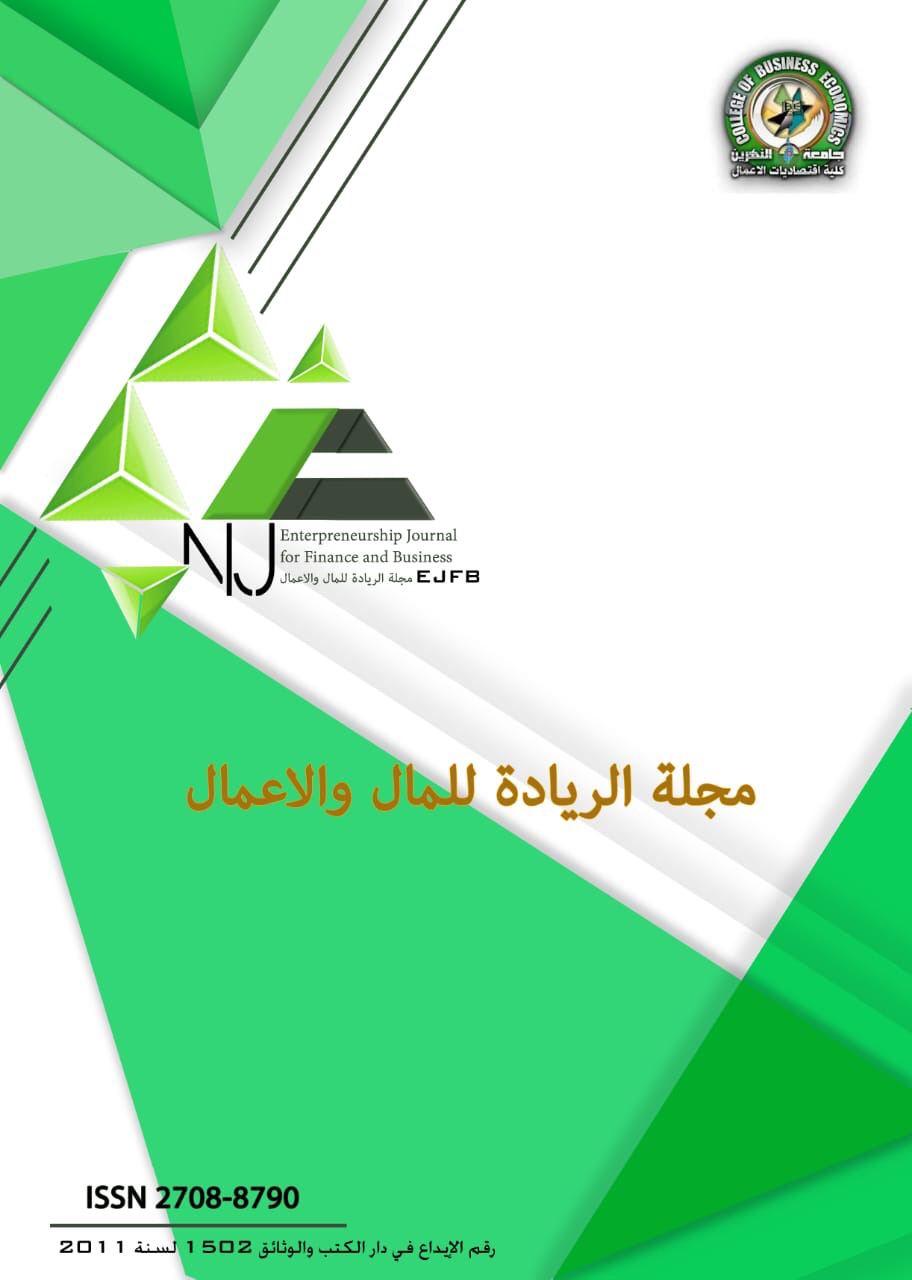تاثير تبني سلوكيات العمل الاستباقية في تحقيق الريادة الاستراتيجية
DOI:
https://doi.org/10.56967/ejfb202260الكلمات المفتاحية:
سلوكيات العمل الاستباقية، الريادة الاستراتيجية، مديرية الاحوال المدنية والجوازات والاقامةالملخص
هدف البحث إلى اختبار تأثير تبني سلوكيات العمل الاستباقية في تحقيق الريادة الاستراتيجية، إذ تم تطبيق البحث في مديرية الاحوال المدنية والجوازات والاقامة لاختبار فرضيات البحث عن طريق استبانة اعدت لهذا الغرض، وقد شملت عينة البحث(220) مستجيباً بشكل قصدي متمثلة بـ(مديري ورؤساء الأقسام ومديري الشعب ومسؤولي الوحدات في المديرية)، وتمثلت مشكلة البحث في التساؤلات الفكرية التي تصف واقعاً تتكامل فيه (سلوكيات العمل الاستباقية والريادة الاستراتيجية) كان من أبرزها "هل يؤثر تبني سلوكيات العمل الاستباقية في تحقيق الريادة الاستراتيجية" اذ تجلت مشكلة البحث في ضعف جودة الخدمات المقدمة لأفراد المجتمع واعتمادها على الاشارة الالكترونية لإنجاز اغلب المهام الخاصة بتقديم الخدمات اليومية للأفراد او المؤسسات على حد سواء، وتجلت أهمية البحث الميدانية في انها طبقت في القطاع الحكومي الامني والذي يؤدي النشاط الخدمي، والذي يعد من القطاعات المهمة لما له من تأثير على الجوانب الامنية والاجتماعية في البلد. وقد تمت الاستعانة بمجموعة من الاساليب الاحصائية من اهمها معامل ارتباط (Pearson) باستخدام (SPSS V.23) ونمذجة المعادلة الهيكلية باستخدام (Amos V.20). وقد توصل البحث لمجموعة من الاستنتاجات منها وجود ادراك لدى افراد العينة عن متغيرات البحث، وان تبني سلوكيات العمل الاستباقية ستحقق الريادة الاستراتيجية في المديرية مجتمع البحث. وقد اوصى البحث بجملة توصيات منها ضرورة تعزيز السلوكيات الاستباقية لدعم التميز في تقديم الخدمات لأفراد المجتمع العراقي والمقيمين فيه بوصفها سمة اساسية لأستدامة ريادية المديرية مجتمع البحث استراتيجياً.
التنزيلات
التنزيلات
منشور
كيفية الاقتباس
إصدار
القسم
الرخصة

هذا العمل مرخص بموجب Creative Commons Attribution 4.0 International License.
هذه هي مقالة منشورة بنمط الوصول الحر وموزعة تحت شروط ترخيص المشاع الابداعي نسب المصنف (CC BY) 4.0 دولي التي تسمح بالاستخدام غير المقيد، التوزيع، واعادة الانتاج في أي وسيط أو صيغة، والتحوير أو البناء على المادة، بما في ذلك للأغراض التجارية، شريطة أن يتم نسب العمل للمؤلف الأصلي.






